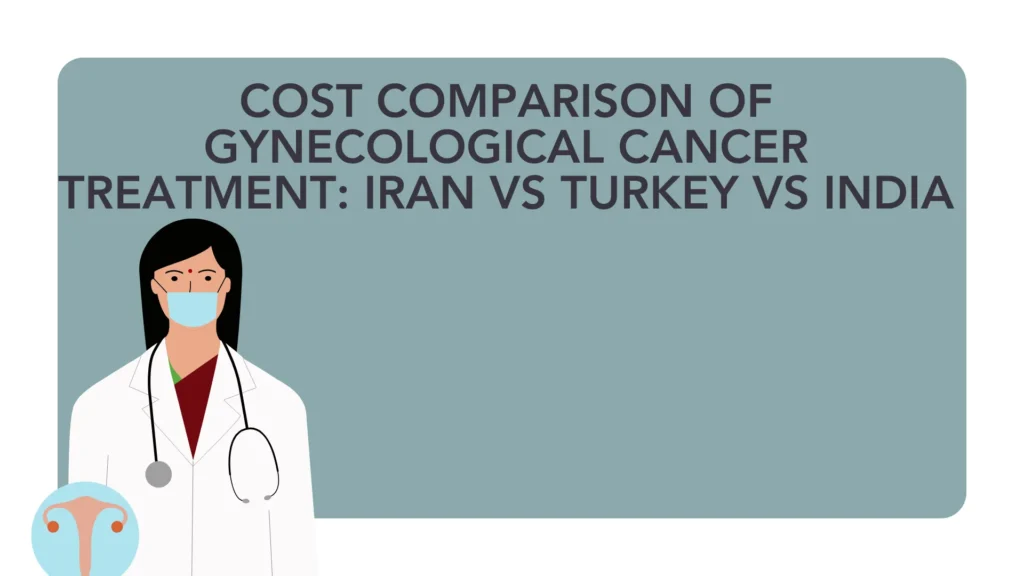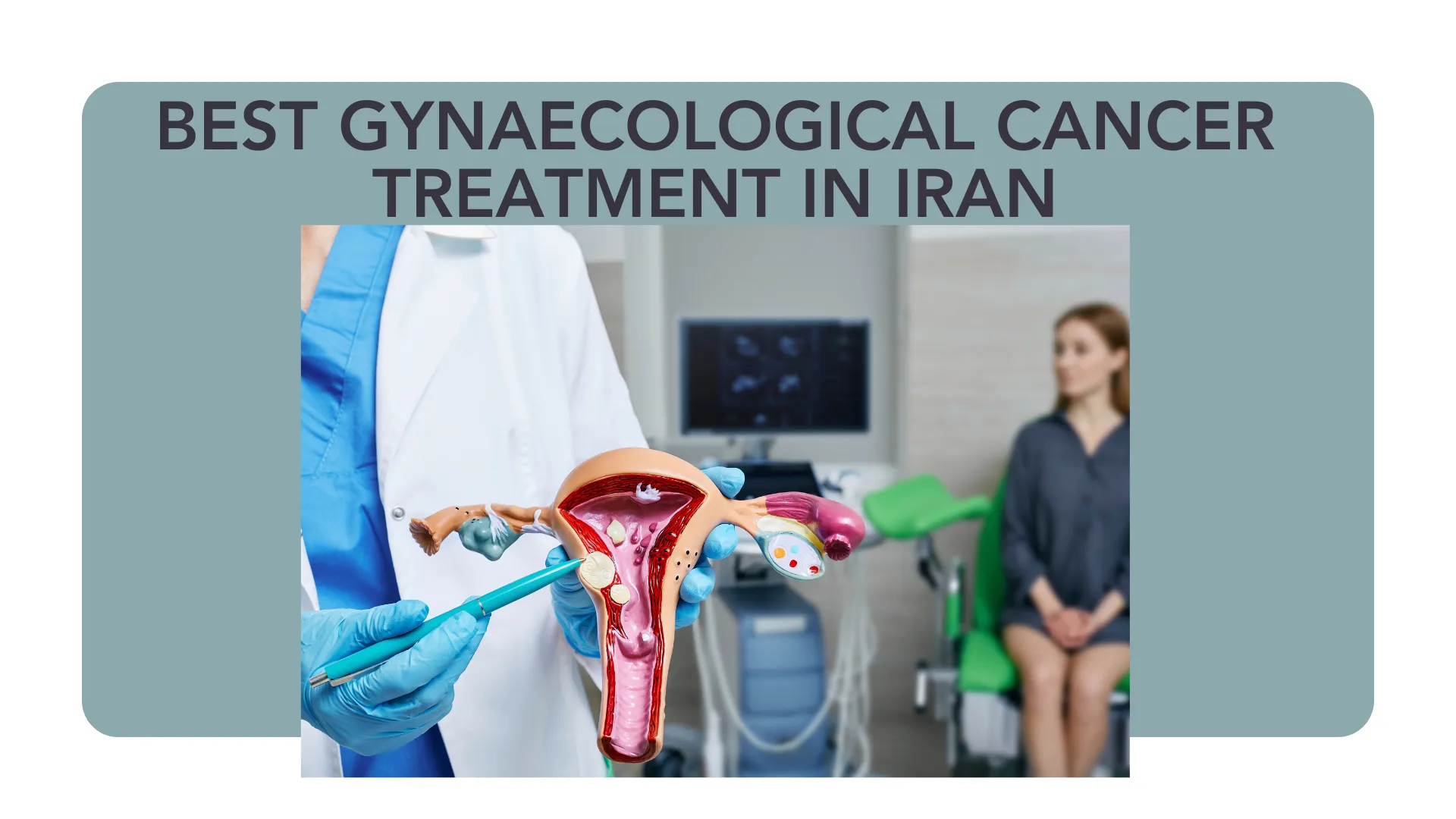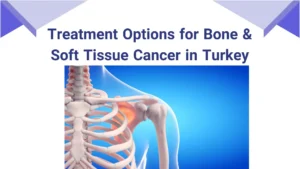Introduction to Gynaecological Oncology in Iran
Gynaecological cancers, such as ovarian, cervical, and uterine cancers, affect thousands of women worldwide each year. Choosing the right place for diagnosis and treatment is one of the most important steps toward recovery. Gynaecological Oncology in Iran has made remarkable progress in recent years, offering patients advanced technology, internationally trained specialists, and compassionate care at an affordable cost. With modern hospitals, state-of-the-art equipment, and personalized treatment plans, Iran has become a trusted destination for women seeking high-quality cancer care.
Treatment Methods for Gynaecological Oncology in Iran
In Iran, women diagnosed with gynaecological cancers receive advanced and personalized treatment plans. Hospitals combine modern technologies with the expertise of oncology specialists to provide care that meets international standards. The choice of treatment depends on the type of cancer, its stage, and the patient’s overall health.
Some of the most common treatment methods include:
Surgery – Often the first step, especially for ovarian or uterine cancer. Surgeons remove the tumor or, in some cases, the affected organ to prevent cancer spread.
Chemotherapy – Used to destroy remaining cancer cells after surgery or as the main treatment when surgery isn’t possible.
Radiotherapy (Radiation Therapy) – Advanced equipment like IMRT ensures precise targeting of cancer cells while protecting healthy tissue.
Hormone Therapy – Effective for certain types of uterine or ovarian cancers that are hormone-sensitive.
Targeted Therapy & Immunotherapy – Newer approaches that attack cancer cells specifically, improving success rates with fewer side effects.
Palliative Care & Supportive Treatments – Focused on improving quality of life, reducing pain, and supporting emotional well-being.
Common Treatment Methods for Gynaecological Oncology in Iran
| Treatment Method | Main Purpose | Advantages |
|---|---|---|
| Surgery | Removal of tumor or affected organ | High success in early stages, prevents further spread |
| Chemotherapy | Destroy cancer cells throughout the body | Effective for advanced stages, can shrink tumors before surgery |
| Radiotherapy | Targeted radiation to kill cancer cells | Precise technology (IMRT), minimizes damage to healthy tissues |
| Hormone Therapy | Blocks or lowers hormones that fuel cancer | Works well for hormone-sensitive cancers, fewer side effects |
| Targeted Therapy | Attacks cancer-specific genes/proteins | Personalized, more effective with less harm to normal cells |
| Immunotherapy | Boosts immune system to fight cancer | Long-term control, promising results in resistant cases |
| Palliative & Supportive Care | Reduces symptoms and improves life quality | Enhances comfort, supports physical and emotional well-being |
With access to these options, patients benefit from a holistic treatment approach that not only targets the cancer but also supports recovery and long-term health.
Best Hospitals for Gynaecological Oncology in Iran
Iran is home to several highly specialized hospitals offering advanced care in gynaecological oncology. These centers combine cutting-edge technology, experienced specialists, and dedicated services for international patients, making them among the top choices in the region.
Razavi Hospital – Mashhad
Razavi Hospital is one of the most advanced medical centers in Iran. It provides comprehensive oncology services equipped with PET/CT and IMRT technologies, along with VIP wards specifically designed for international patients.
Milad Hospital – Tehran
Milad Hospital, one of the largest hospitals in Iran, is a leading center for cancer care. It offers specialized services in gynaecological oncology, including laparoscopic surgery, targeted chemotherapy, and advanced radiotherapy.
Namazi Hospital – Shiraz
Namazi Hospital is a major hub for cancer treatment in Iran. Known for its modern facilities and international collaborations in cancer research, it provides advanced care with a strong focus on international patients.
Comparison Table
| Hospital | City | Key Strengths | International Patient Services |
|---|---|---|---|
| Razavi Hospital | Mashhad | PET/CT, IMRT, VIP oncology wards | Translation, VIP suites, travel support |
| Milad Hospital | Tehran | Laparoscopic surgery, targeted chemo, advanced radiotherapy | International desk, interpreter services |
| Namazi Hospital | Shiraz | Research collaborations, advanced oncology units | Patient coordination, accommodation support |
Choosing the right hospital for oncology in Iran ensures patients receive high-quality, personalized care. With WMedTour’s guidance, international patients can access top hospitals like Razavi, Milad, and Namazi, enjoy seamless support services, and benefit from advanced treatments tailored to their needs.
Treatment Costs of Gynaecological Oncology in Iran
One of the main reasons international patients choose Iran for gynaecological oncology treatment is affordability. Compared to Europe, Turkey, or India, patients can access the same modern medical care at significantly lower costs.
Cost Overview Table
| Treatment Type | Iran (USD) | Turkey (USD) | India (USD) | Notes |
|---|---|---|---|---|
| Surgery (hysterectomy, tumor removal) | 3,500 – 6,000 | 7,000 – 10,000 | 5,000 – 8,000 | Depending on hospital and complexity |
| Chemotherapy (per cycle) | 400 – 800 | 700 – 1,200 | 500 – 900 | Varies by drug and regimen |
| Radiation Therapy (per session) | 100 – 200 | 200 – 400 | 150 – 300 | Includes IMRT and targeted therapy |
| Combination Therapy | 8,000 – 15,000 | 15,000 – 25,000 | 10,000 – 18,000 | Full treatment package |
Key Advantages:
Significant savings without compromising quality
Access to advanced diagnostic and therapeutic technologies
Coordinated care with international patient services
Choosing Iran for gynaecological oncology treatment offers a cost-effective option without sacrificing quality. Patients benefit from modern facilities, experienced specialists, and comprehensive care at a fraction of the price compared to many other countries. This makes Iran an attractive destination for international patients seeking both affordability and advanced medical treatment.
The Best Doctors for Gynaecological Oncology in Iran
When it comes to gynecological cancers, patients want the assurance of being treated by specialists with deep expertise. The best doctors for gynaecological oncology in Iran are highly skilled in performing advanced surgeries, managing chemotherapy and radiation therapy, and applying the latest international guidelines. Many of them have trained in leading medical centers abroad, which allows them to combine global knowledge with local experience.
Patients benefit from:
Personalized care tailored to their type and stage of cancer.
Expertise in advanced surgeries, including minimally invasive and laparoscopic techniques.
Experience with combined treatments, ensuring better outcomes and faster recovery.
Compassionate support, focusing on both physical treatment and emotional well-being.
Choosing the best doctors for gynaecological oncology in Iran not only ensures access to world-class treatment but also provides patients with confidence and peace of mind during their journey to recovery.
| Feature | Iran | Turkey | India |
|---|---|---|---|
| International Training | Many doctors trained in top global centers | Some trained abroad | Some trained abroad |
| Advanced Surgical Techniques | Laparoscopic, minimally invasive, robotic-assisted | Laparoscopic, robotic-assisted | Laparoscopic, minimally invasive |
| Chemotherapy & Radiation Expertise | Comprehensive, follows latest guidelines | Available in major centers | Available in major centers |
| Patient Support Services | Multilingual support, travel assistance, counseling | Limited international patient support | Limited international patient support |
| Cost of Treatment | Significantly lower than Turkey & India | Moderate | Moderate |
| Personalized Care | High, tailored treatment plans | Moderate | Moderate |
In recent years, Iran has witnessed a significant increase in cancer incidence, which has posed a new challenge in preserving women’s fertility.”
— Study in BMC Cancer

Cost Comparison of Gynecological Cancer Treatment: Iran vs Turkey vs India
Iran is becoming a popular destination for gynecological oncology due to high-quality care at affordable prices. Compared to Turkey and India, Iran offers similar advanced treatments with significant cost savings. Patients benefit from experienced specialists, modern technology, and comprehensive support services.
| Country | Average Cost of Treatment | Key Advantages | Notes |
|---|---|---|---|
| Iran | $5,000 – $12,000 | Modern hospitals, internationally trained doctors, lower costs | Full care with post-treatment follow-up included |
| Turkey | $10,000 – $20,000 | Advanced facilities, language support | Slightly higher costs for similar treatments |
| India | $6,000 – $15,000 | Affordable care, experienced specialists | Quality varies by city and hospital |
Summary: Choosing Iran for gynecological cancer treatment provides effective care at a fraction of the cost compared to Turkey, while still offering high-quality treatment comparable to India. Patients receive personalized care, advanced technology, and comprehensive support services throughout their treatment journey.
WMedTour: Your Guide to Gynecological Oncology in Iran
Iran has emerged as a trusted destination for gynecological oncology treatment, combining modern medical facilities, experienced specialists, and cost-effective care. Patients benefit from advanced diagnostic tools, personalized treatment plans, and supportive hospital environments across Tehran, Shiraz, and Mashhad.
Why Choose WMedTour:
Expert guidance in selecting the best hospitals and specialists.
Assistance with travel, accommodation, and appointment scheduling.
Continuous support for international patients before, during, and after treatment.
With WMedTour, patients can access high-quality gynecological oncology care in Iran with confidence and peace of mind, ensuring both effective treatment and a smooth medical journey.
FAQ: Gynecological Cancer Treatment in Iran
1. What is the cost of gynecological cancer treatment in Iran?
Costs vary by cancer type, stage, and hospital. On average, Iran offers high-quality care at significantly lower prices than Turkey, India, or Western countries.
2. How do I find the best hospitals for gynecological cancer in Iran?
Top hospitals include Tehran’s Milad and Pars Hospitals, Shiraz’s Namazi Hospital, and Mashhad’s Razavi Hospital. WMedTour helps patients select the best facility.
3. Are Iranian oncologists internationally trained?
Yes. Many specialists have trained in leading global cancer centers and bring expertise in surgery, chemotherapy, radiation therapy, and targeted treatments.
4. Can international patients receive treatment in Iran?
Absolutely. Hospitals offer services for foreign patients, including translation, appointment scheduling, and travel coordination.
5. What advanced technologies are used in Iranian hospitals?
Facilities are equipped with PET/CT scans, robotic surgery, IMRT, and precision radiotherapy for accurate diagnosis and treatment.
6. How long does gynecological cancer treatment take in Iran?
Treatment depends on cancer type and stage, ranging from weeks for surgery or radiation to several months for chemotherapy or combination therapy.
7. Can treatment in Iran be combined with follow-ups in my home country?
Yes. WMedTour coordinates international care, allowing follow-ups locally under guidance from Iranian specialists.
8. Are there specialized centers for young or pediatric patients?
Yes. Some hospitals have dedicated oncology units providing age-appropriate care and psychological support.
9. How do I schedule an appointment through WMedTour?
Appointments can be arranged via email, phone, or online form for consultation, diagnostics, and treatment planning.
10. What support services are available for international patients?
Services include airport pickup, accommodation arrangements, translation, treatment coordination, and post-treatment follow-up.





